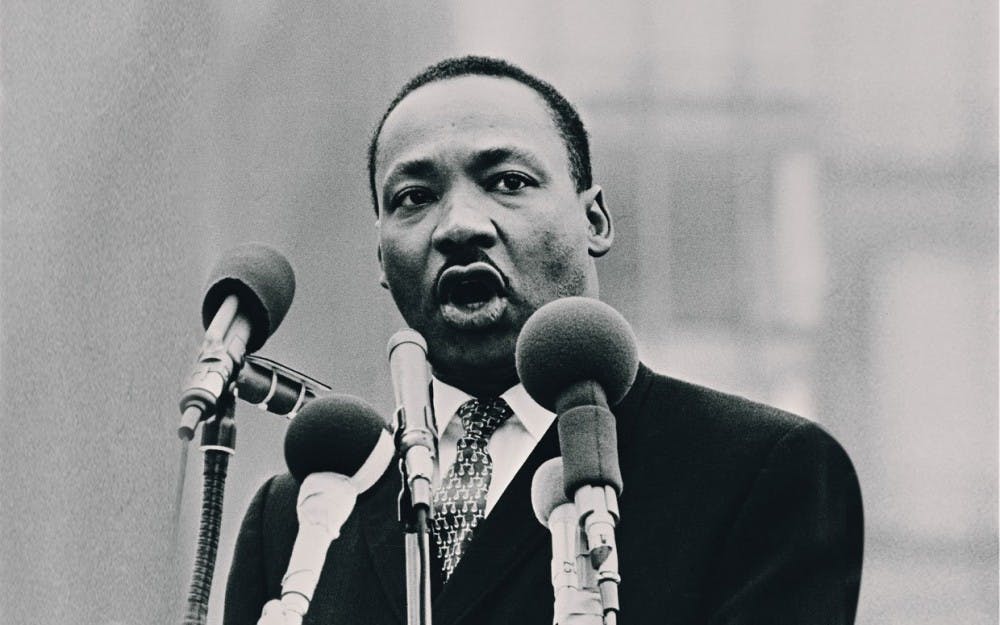BSA events honoring black history:
Wednesday, Feb. 15: "My Black is Comical" (Wildin' Out Wednesday), L.A. Pittenger Student Center Ballroom at 6:45 p.m.
Thursday, Feb. 16: "My Black is Spontaneous" (Karaoke Night), Art and Journalism Building Room 175 at 2 p.m.
The Multicultural Center is hosting a social media campaign on their Twitter (@BSUMulti) to raise awareness for Black History Month.
February was officially deemed Black History Month in 1976. In school, it is rare for students to learn about black history outside of February. Within those 28 days, the Civil Rights Movement functions as the central unit where students learn about activists like Rosa Parks and Martin Luther King Jr. A lot of history is skimmed over, and in some cases not even touched on.
At Ball State, Black History Month is celebrated by the Black Student Association, the Multicultural Center and other multicultural organizations on campus.
RELATED: BREAKING STEREOTYPES: I'm a part of BSA, but...

"Just celebrating the people that basically paved the way for African Americans and for us to have the rights that we do now,” Williams said. "We’ve made some long strides. So letting us know and everyone else know that there’s some good to us and we’ve done good things in the past and we can still do good things."
As a student, Williams feels as if Ball State still has steps to take to improve diversity on campus; however, in BSA, she feels like a part of something.
“I feel like that’s why it’s so important to create a space where maybe we can be tolerant of one another. We can feel safe away from home because a lot of people are far away from home. I mean there’s people from different countries coming here just to further their education,” Williams said.
 To Charlene Alexander, associate provost for diversity and director of office of institutional diversity, Black History Month is ...
To Charlene Alexander, associate provost for diversity and director of office of institutional diversity, Black History Month is ...
“I think Black History Month, as with Asian History Month, Hispanic History Month, these are moments that we as a country can pause and think about the contributions of those who came before us," Alexander said. "It’s a way for us to remember our past, our collective heritage.
"I think it’s important to pause and to remember that but as we also look at that history to also reflect on where we are today as a country."
Alexander said it's not only important to celebrate diversity — it's essential in today's society.
"This is what employers are looking for they’re seeking individuals who are able to work creatively together to problem solve who can think outside of the box and that’s what diversity brings to the table,” Alexander said.
No matter what the month, it's important to incorporate these experiences into everyday life.
“While I think it’s important to have a space and a time to recognize and reflect on the contributions of those who came before us this my belief is that this should be ... so much a part of who we are," Alexander said. "It’s important to have those moments [and] that we continue to remember and reflect on the contributions of those who are different than us all year round. All year round."

“Black History Month means, it’s just a celebration of who we are,” Langham said. "Just overcoming our past and being able to celebrate the people that we are now, so it’s a big thing for me."
Langham sees the month not only as a celebration of events accomplished, but as an opportunity to share experiences as a group.
“It’s a benefit to other people because we’re all coming from different places, but collectively we are people of color," Langham said. "It’s just a great way to connect with people, get to know people who maybe share the same, or don’t have the same values and cultural backgrounds as you."
While the university has begun conversations about diversity, Langham still sees areas for improvement.
“In a way I think the university has provided that for us, but I think they could do better. Especially with the events that happened last semester with the black student and the note. I thought that they didn’t really take action with that situation and that could’ve been handled a lot differently and in a better way,” Langham said.

"A lot of people don’t understand the history and the contributions due to oppression, due to marginalization — you name it," Steele said. "So I think it’s important for us to uphold the legacy of all the contributors and uphold the integrity of all the contributions that our past citizens have made to this country.
"That’s a story that’s untold often and we need to recognize that and continue to tell those stories so people are fully aware of what has happened in our country."
These stories wouldn't be able to be told without a platform. The Multicultural Center along with other organizations, Steele said, provides students with this platform.
“It’s important for people to be able to have access to be able to have a voice and to be able to somehow impact change," Steel said. "Maybe they can influence someone else who may be judgmental or may be unaware or just overall have a lack of knowledge or a lack of awareness. Maybe they can be exposed then even if their opinions don’t change or their ideologies don’t change, at least there would be a level of respect and not a level of judgement or pre-judgement."





